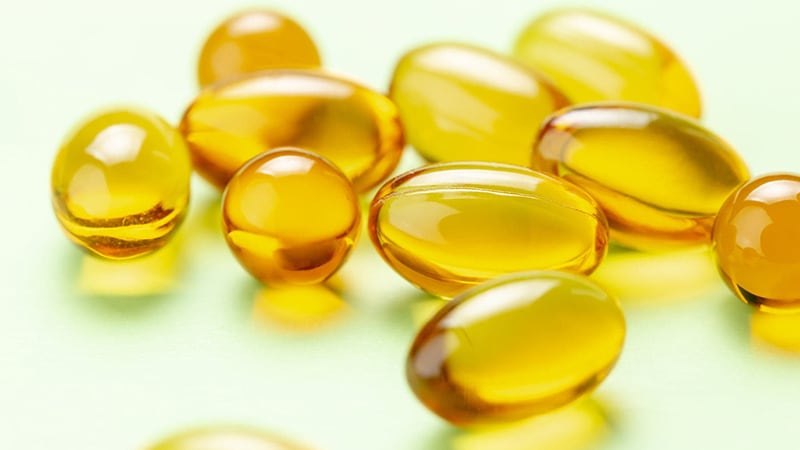Editor’s note: Find the latest COVID-19 news and guidance in Medscape’s Coronavirus Resource Center.
People with a vitamin D deficiency are more likely to have a severe or critical case of COVID-19, according to a new study published in the journal PLOS ONE.
The study is based on data from Israel’s first two coronavirus waves before vaccines were widely available. The scientists stressed that vitamin supplements aren’t a substitute for vaccines but that they can help immunity levels.
“We found it remarkable, and striking, to see the difference in the chances of becoming a severe patient when you are lacking in vitamin D compared to when you’re not,” Amiel Dror, MD, the lead study author and a doctor at Galilee Medical Center, told The Times of Israel.
Although the study was conducted before the Omicron variant, he said, the coronavirus hasn’t changed enough to negate the effectiveness of vitamin D.
“What we’re seeing when vitamin D helps people with COVID infections is a result of its effectiveness in bolstering the immune systems to deal with viral pathogens that attack the respiratory system,” he said. “This is equally relevant for Omicron as it was for previous variants.”
The research team looked at vitamin D levels for more than 250 patients hospitalized at the Galilee Medical Center with a positive COVID-19 test between April 2020 and February 2021. The vitamin D levels were based on testing conducted before the hospitalization as part of routine bloodwork or for vitamin D deficiency, ranging from 14 to 730 days before the positive PCR test.
Patients with a vitamin D deficiency were 14 times more likely to have a severe or critical case of COVID-19. What’s more, the mortality rate for those with insufficient vitamin D levels was 25.6%, compared with 2.3% among those with adequate levels.
The differences still applied after researchers controlled for the patients’ age, gender, and history of chronic diseases.
Health officials in several countries have recommended vitamin D supplements during the pandemic, even while data was sparse, The Times of Israel reported. Recent studies have pointed to the links between vitamin D deficiency, severe COVID-19, and hospitalization, though researchers wondered whether the coronavirus caused the deficiency in the first place.
To answer that question, Dror and colleagues looked closer at the data among Israeli patients to get a better picture of their vitamin D levels before COVID-19 infection.
“We checked a range of timeframes and found that wherever you look over the 2 years before infection, the correlation between vitamin D and disease severity is extremely strong,” Dror told The Times of Israel. “It emphasizes the value of everyone taking a vitamin D supplement during the pandemic, which, consumed in sensible amounts in accordance with official advice, doesn’t have any downside.”
For more news, follow Medscape on Facebook, Twitter, Instagram, and YouTube.
Source: Read Full Article



